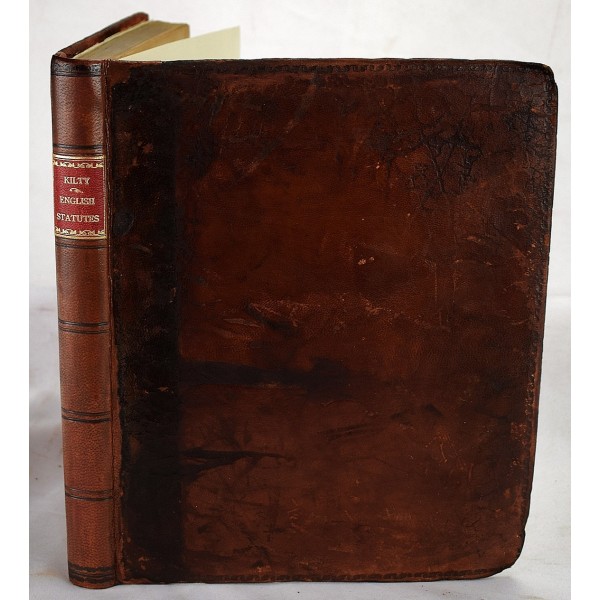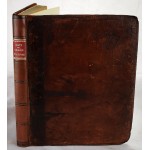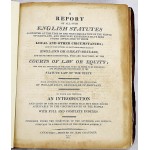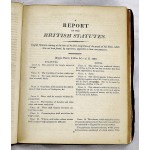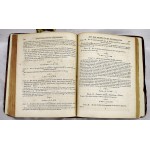A Report of all such English Statutes as Existed at the Time of the First Emigration of the People of Maryland
A report of all such English statutes as existed at the time of the first emigration of the people of Maryland : and which by experience have been found applicable to their local and other circumstances : and of such others as have since been made in England or Great-Britain, and have been introduced, used and practised, by the courts of law or equity : and also all such parts of the same as may be proper to be introduced and incorporated into the body of the statute law of the state
William Kilty
Annapolis [Md.] : Printed by Jehu Chandler, 1811
[Kilty's Report: The Evolution, preservation and echoes of English Law in Maryland] Quarto, 26 cm. Bound in contemporary full calf. Binding worn, rebacked spine. Leather spine label. Leather rubbed. Historical society stamps and markings. 289 pages + errata. Kilty was an English-born Marylander, who after service in the Revolutionary army, became prominent in the state's legal administration. Kilty served as compiler of the laws of Maryland, a Judge, and Chancellor of Maryland. Kilty's work was an attempt to compile various English laws that remained in force in the state from colonial days, but may not have been enacted by legislation. Prior to the State's constitution of 1851, Maryland had two classes of law, those retained from English law and those passed by the legislature. Common law was adopted in mass, so far at least, as it is not inconsistent with the principles "of the Constitution and the "nature of our political institutions." (Dasbiell v. Atty. Gen., 5 H. and J. 40). Kilty's Report was used by Maryland lawyers and courts as a guide to the application of the law in the Free State. See: Bernard C. Steiner, "The Adoption of English Law in Maryland," Yale Law Journal, Vol. 8, No. 8 (May, 1899), pp. 353-361. Sabin 45320.
